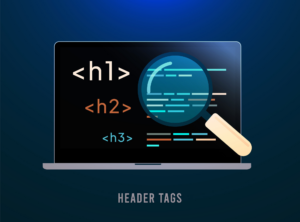It’s one of the most difficult decisions for many businesses to make. There are so many companies and individuals to choose from, different prices, different inclusions, technical terms that most people don’t understand, and so on. Here are some of the factors to consider when making that decision.
You get what you pay for
There are many web designers who charge basement prices because they’re either unskilled or so new to the industry that they don’t know what they’re worth.
Don’t be fooled by companies who offer complete websites for just a few hundred dollars; while they may provide a working website, it may not be properly set up. For example, it may rank poorly in search engine results (or worse – not appear at all), be difficult to find what you’re looking for, or have ongoing problems that end up costing you more in the long run.
Websites are like sales staff
A website is more than just a nice looking design. It needs to act like a salesperson to ensure visitors are doing what you want them to do – there isn’t much point having a website otherwise.
Many developers use free website templates and software to create a website. That’s fine for some businesses, but do you really want to be using a website that looks exactly the same as countless others – maybe even the same as your competitors?
Other developers will design the site for you, but if you look at their portfolio and samples, are their websites achieving their aim? For example, is it clear what your company does, at a glance? Can visitors find your contact details and business address? Are they encouraged to buy your products or make an enquiry online?
Moreover, if the developer isn’t designing the site, and isn’t creating or customising the software, what exactly are you paying for?
Technical expertise
Webpages are increasingly technical and complicated. Does the designer have the skills to quickly fix issues that arise? Can they provide innovative solutions to meet your needs? Are they willing to provide all of the necessary training? These are all important factors, so you need to make sure you’re comparing more than just prices and the list of included features. You need an expert if you want an outstanding online presence.
Experience
Experience is priceless. We’ve designed hundreds of websites for our clients over the past decade. We know exactly what is involved in creating a website, how to ensure its success, how to improve it over time, and everything else required for ongoing results.
Make sure whoever is designing your site knows what they’re doing. You wouldn’t hire inexperienced staff without training them, so you shouldn’t contract an inexperienced website developer either.
Support
What happens after your website is launched and you’ve paid the bill? Will the developer follow up to make sure everything’s working as intended? Will they ensure you understand how to use and update the website?
We offer free lifetime support with all of our websites so you’re not left with a faulty website and no idea how to fix it. Ask each developer on your list about what support they provide and you’ll find there’s often a huge difference between providers. You might be paying through the nose for post-launch support.
Ongoing costs
Is the quoted price a one-time fee, or are you paying additional fees? Often the price you’re given is much lower than the true cost, because you may end up paying monthly or annual fees to keep your website running.
Most providers will have some annual charges such as hosting or domain fees, but if you’re paying anything else then you’ve probably been lured into a contract that will cost you much more in the long run.
Search engine optimisation (SEO)
Many people don’t understand what SEO is. In a nutshell, it means setting up a website so that it performs as well as possible in search engines.
Proper SEO includes adding keywords, descriptions and other information (collectively called ‘metadata’) to every page of your site; ensuring your text is well written to include relevant keywords; adding descriptive text to images; creating a ‘site map’ (a listing of all pages on your website) and lots of other methods.
While some web developers may list ‘SEO’ in their website inclusions, this may in fact mean they’re simply adding basic metadata to your pages. But others, including ourselves, will go a step further by analysing your site’s content, making recommendations about naming your pages and the menu structure, submitting your website address to dozens of major search engines, and more.
Find out about our search engine optimisation services
Ask questions
The bottom line? Make sure you ask lots of questions before you agree to anything. Some good questions include:
- What is included in a website package?
- What are the ongoing costs?
- What do you charge for support after the website is launched?
- What does search engine optimisation include? Is it one-time or ongoing?
- What are the addresses of your best five websites?
- What changes can I make to the website myself?
- Do you design the website, from scratch, to match my business?
Ask us these questions and compare our responses to others from the industry. You’ll be surprised just how much better and more cost-effective our services really are.










